Jodi Picoult, Christa McAuliffe and Jeanne Shaheen among influential New Hampshire women
Women of the Granite State have demonstrated a strength, courage and resolve both before and after they could legally vote, personifying Yankee independence and a rugged resilience.
Perhaps the challenge of merely surviving New Hampshire's harsh winter weather steeled them with the skill and smarts needed for their family’s survival. Perhaps the personalities of the kind of women who chose to settle here already required an innate adventurousness and resolve. No matter its origins, these traits and the courage to break barriers have been handed down from one generation to the next through honorable examples and nurturing mentors.
In August, America will commemorate the 100th anniversary of the 19th Amendment, when women gained the legal right to vote. To mark this centennial, the USA TODAY Network is naming 10 American women from all 50 states and the District of Columbia who’ve made significant contributions to their respective states and to the country as Women of the Century.
The women under consideration as Women of the Century were expected to have a track record showing outstanding achievement in arts and literature, business, civil rights, education, entertainment, law, media, nonprofits and philanthropy, politics, science, medicine or sports. Other requirements included U.S. citizenship and having lived between 1920 and 2020, the century that the 19th Amendment has changed women’s lives.
Nominations came from a panel of women leaders as well as the public. Narrowing the nominees has been no easy task.
Are you registered to vote? Take the first step to making sure your vote counts.
Picking just 10 people leaves out so many dynamic figures, so many compelling moments in history, amazing achievements and powerful accomplishments.
Some of the state’s most notable names didn’t quite make it into the list of 10, or else didn’t qualify. For example, Harriet Wilson, who was born in Milford, New Hampshire, was the first African American of any gender to publish a novel on the North American continent. Her name was on everyone’s list until we realized she died in 1900, before our time frame, thus disqualifying her.
Those who did make it into our final 10 come from various generations and careers, but they all share a record of extraordinary achievement.
Who is your Woman of the Century? Did we miss a woman you think should be on our list? We’d like to hear from you.
Christa McAuliffe
First American civilian selected for a space mission
(1948-1986)

A beloved hometown hero who reached for the stars, Christa McAuliffe was an extraordinarily dedicated teacher who was selected by NASA from more than 11,000 applicants to be the first teacher in space.
After college and graduate school, the Massachusetts native moved to New Hampshire to teach social studies at Concord High School in Concord, New Hampshire. A gifted teacher, her commitment to teaching contributed to her selection for NASA’s Teacher in Space program. She saw it as the ultimate field trip for her students.
The high school teacher made history in 1985 as the first private citizen passenger to ever be launched into space.
At her proudest moment, shortly after blastoff, the Space Shuttle Challenger exploded as her family and friends at Cape Canaveral were still cheering, and as her students and classrooms across the Granite State watched on live television. McAuliffe was killed along with six other crew members.
The Christa McAuliffe Planetarium in Concord, now the McAuliffe/Shepard Discovery Center, is named in her honor, as are an asteroid and a crater on the moon. She was posthumously awarded the Congressional Space Medal of Honor in 2004. In addition, the Christa Corrigan McAuliffe Center at Framingham State College in Massachusetts was established to carry on her legacy and support advancement of educational practices throughout the region.
Jeanne Shaheen
U.S. senator, first female governor of New Hampshire
(1947- )
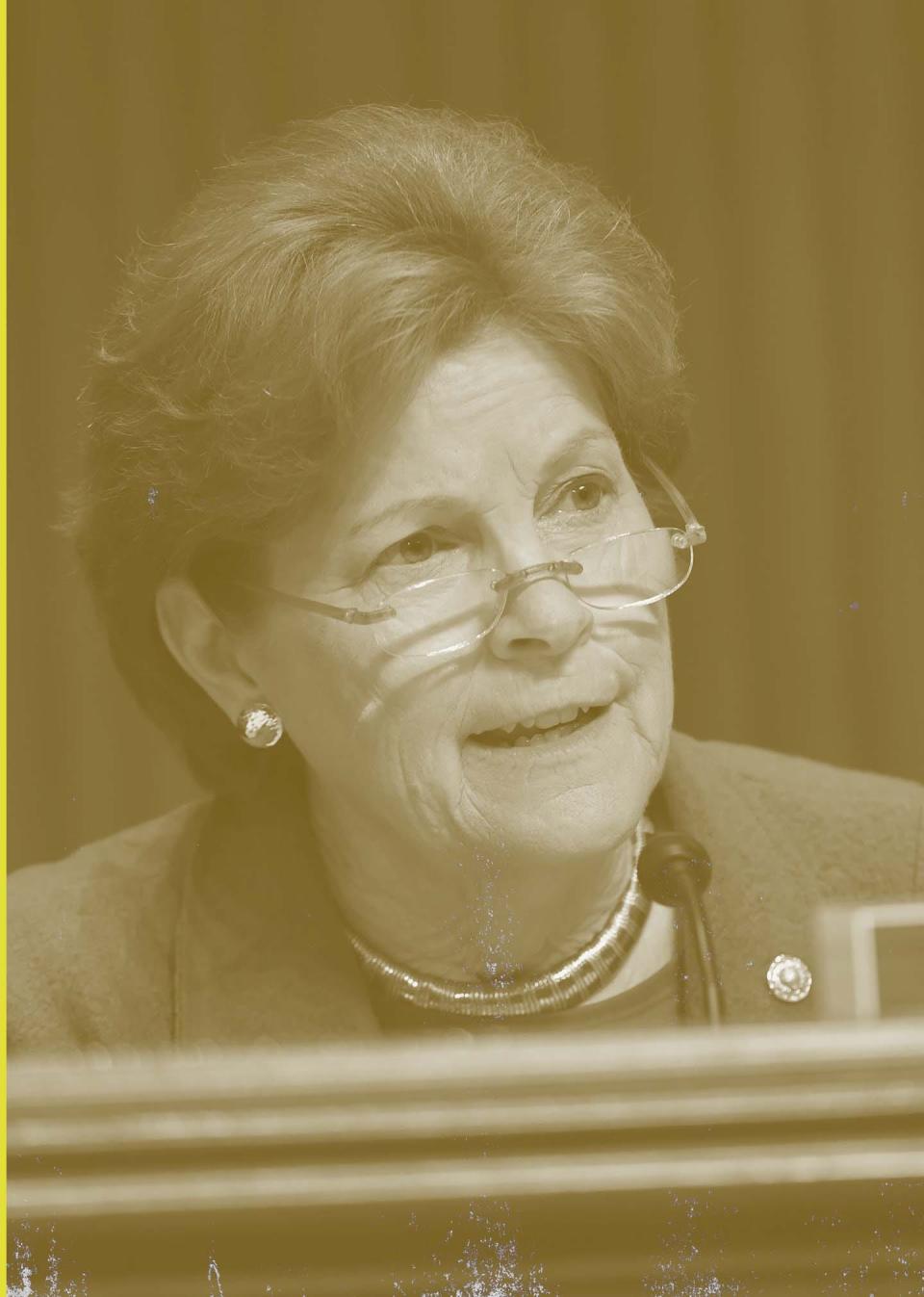
Jeanne Shaheen is the senior U.S. senator from New Hampshire. Her firsts include being the first female U.S. Senator in New Hampshire's history, New Hampshire’s first female governor, and the first woman elected as both a governor and a U.S. senator in American history.
A native of Missouri, she studied, lived and taught in many locations before moving to New Hampshire in 1973. Here she taught high school and owned a retail store before she began working on political campaigns. In 1990, she was elected to the state Senate. She first ran for governor in 1996 and won three two-year terms, serving until 2003.
In her first two runs, Shaheen took the no-new taxes pledge, a staple in New Hampshire politics. However, running for her third term in 2000 and staring down the school funding crisis, she refused to renew the pledge and won anyway. The victory made her the first New Hampshire governor in 38 years to win an election without making that pledge.
Now serving her second term as U.S. senator, she is a member of the Senate committees on Ethics; Appropriations; Armed Services; Foreign Relations; and Small Business and Entrepreneurship. Shaheen also serves on the Commission on Security and Cooperation in Europe.
Marilla Ricker
First female attorney admitted to the New Hampshire bar
(1840-1920)
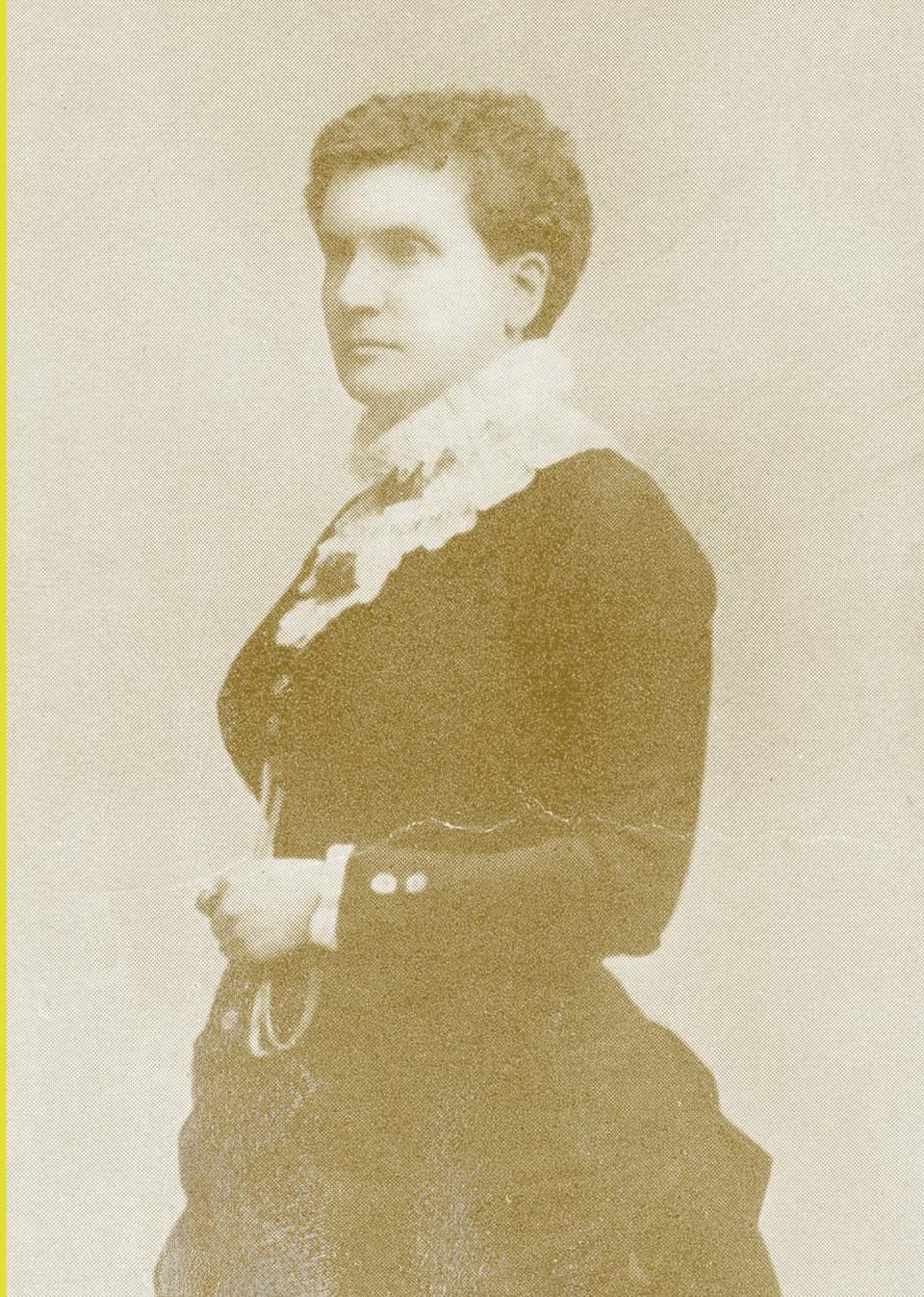
When Marilla Ricker became the first female attorney admitted to the New Hampshire bar in 1890, she set out to prove that women were just as qualified as men, a cause she dedicated her life to as a philanthropist.
Born in New Durham, she taught school until she married a wealthy farmer and moved to Dover. After her husband’s death, she began the study of law in Washington, D.C., and was admitted to the bar of the Supreme Court of the District of Columbia in 1882.
As a lawyer, she tried several important cases in D.C. but most enduringly became known as the “prisoner’s friend” for the legal and financial help she gave to prostitutes, and people who were incarcerated. She was praised for putting much of her personal money into these cases.
A suffragette, Ricker spent part of every year in Dover and as part of that visit tried every year, starting in 1870, to vote in New Hampshire. She believed as a tax-paying property owner she should be allowed to vote, but every year she was denied.
In 1910, she attempted to run for governor, knowing it wouldn’t happen but wanting to make a point. She also applied to be the diplomat to Columbia in 1897 on the same principle.
In 1920, just months before her death, she legally voted for the first time.
Jodi Picoult
Best-selling author
(1966- )

Jodi Lynn Picoult is a best-selling author of 25 novels with about 14 million copies of her books in print worldwide. They have been translated into 34 languages. Four have been made into movies. Her most recent novel, “A Spark of Light,” was her 10th consecutive instant No. 1 New York Times best-seller.
Her stories are described as family sagas, often diving into some of the most controversial topics in America today and looking at how they can divide families and how families work through it.
Now a resident of Hanover, New Hampshire, the Long Island, New York, native is ranked in the top 10 of Princeton University’s most influential living alumni.
In 2016, Picoult joined the advisory board of Vida: Women in Literary Arts, a "non-profit intersectional feminist organization dedicated to creating transparency surrounding gender imbalances and the lack of diversity in the literary landscape.” She was a member of the inaugural Writers Council of the National Writing Project in 2013.
She is the recipient of more than 13 literary awards. Most recently, she was honored with the 2019 Hale Award, which recognizes a distinguished body of work in the field of literature and letters. Named for poet Sarah Josepha Hale, the New England regional award honors the contribution of one of America’s most powerful women of the 19th century.
Ruth Griffin
Politician
(1925- )
Ruth Griffin has been a longtime state legislator, a 20-year state executive councilor and a New Hampshire Republican icon who has helped shape how the Granite State has grown and prospered.
For more than 40 years, she served as a state representative, a state senator and an executive councilor, the highest rank a woman in state government had achieved at the time. Griffin, a former nurse, gave decades of public service to her country, state, county and hometown.
A longtime and active Republican, Griffin, a Portsmouth resident, served two terms as Republican National committeewoman; was a member of the selection committee of the RNC for the 2000 convention; and served many times as a delegate to the Republican National Convention, beginning in 1972.
Many women consider her a mentor, including former U.S. Sen. Kelly Ayotte of New Hampshire. A prominent Seacoast bridge has been named in her honor.
Griffin continues to be politically active, chairing the Portsmouth Housing Authority’s Board of Commissioners.
Valerie Cunningham
Civil rights activist
(1941- )
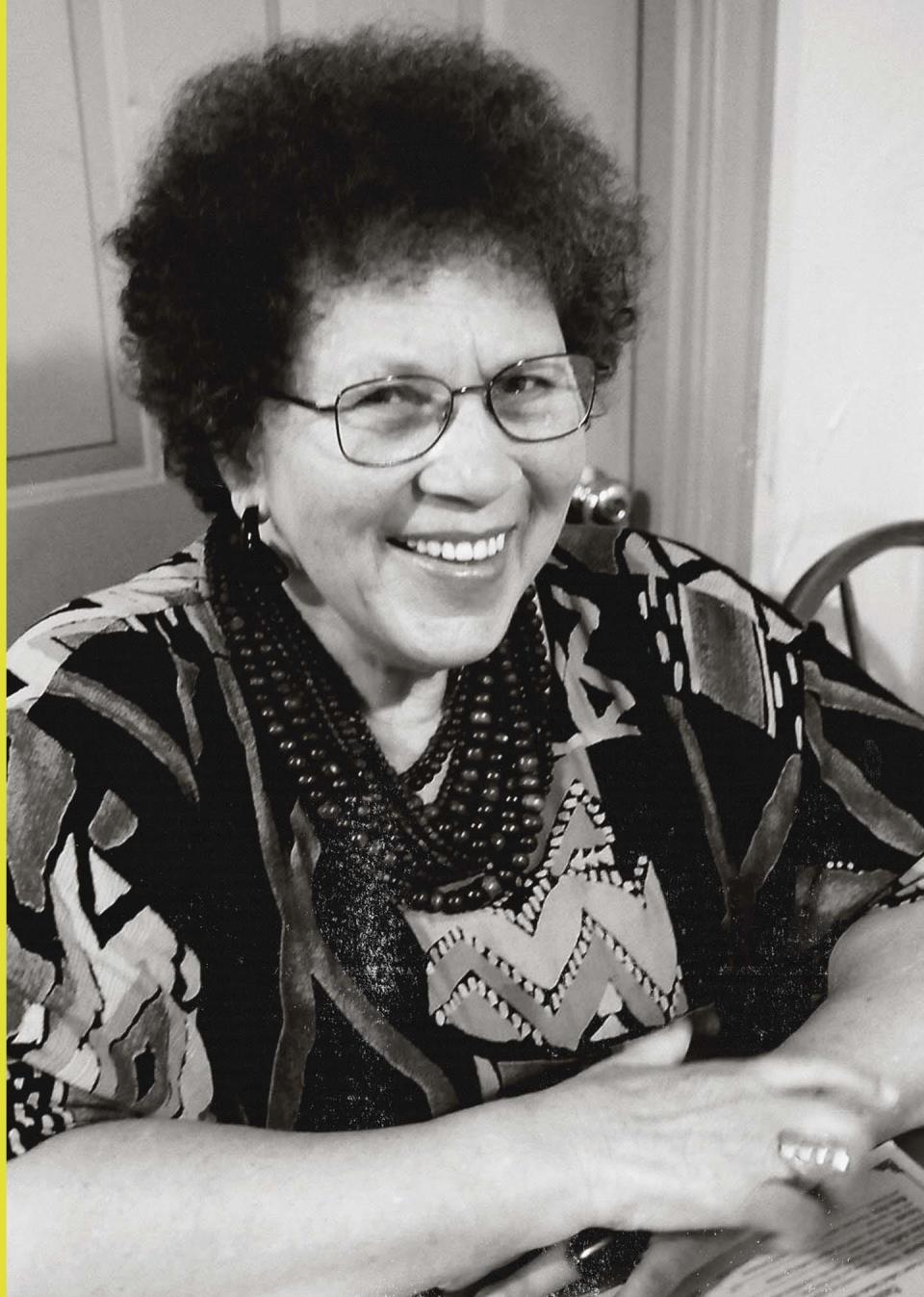
Valerie Cunningham was one of five Black graduates in Portsmouth High School’s Class of 1959. Sixty years later, she is an active writer, researcher, educator and preservationist. The New Hampshire native is the founder of the Portsmouth Black Heritage Trail, and was integral in the founding of the Black Heritage Trail of New Hampshire and in the creation of Portsmouth’s African Burying Ground Memorial Park.
In 1961, Cunningham served a term as secretary for the local NAACP chapter. In 1965, she marched for school integration in Boston with Dr. Martin Luther King Jr. In the 1960s, she also began to document the stories of the early Black residents in Portsmouth and throughout the state.
She was a principal of the African American Resource Center (now the Seacoast African American Cultural Center) from 1987 to 2017, where she wrote, researched and provided consultation on the Black history of northern New England and advocated for the preservation of African American historic sites and archives. She also held various positions at the University of New Hampshire, retiring in 2008 as coordinator of Black Community Partnerships.
With historian Mark J. Sammons, Cunningham co-authored, “Black Portsmouth: Three Centuries of African-American Heritage.” The book earned many local and national awards, including a Restore America Hero award from the National Trust for Historic Preservation.
After pushing for 20 years, Cunningham influenced New Hampshire to establish a holiday to honor Dr. Martin Luther King Jr. Her social justice work also included working on the University of New Hampshire Commissions for the Status of Women and State Women’s Commission. As part of the state commission, she helped create the New Hampshire Women’s Heritage Trail.
Most recently, Cunningham was recognized as one of the 2018 Trailblazers by the New Hampshire Women’s Foundation.
For decades, Cunningham has inspired, motivated and influenced the Seacoast community and the Granite State by discovering and telling the truth about its African American history, changing hearts and minds through raising awareness and education.
Dudley Dudley
Politician and environmental activist
(1936- )
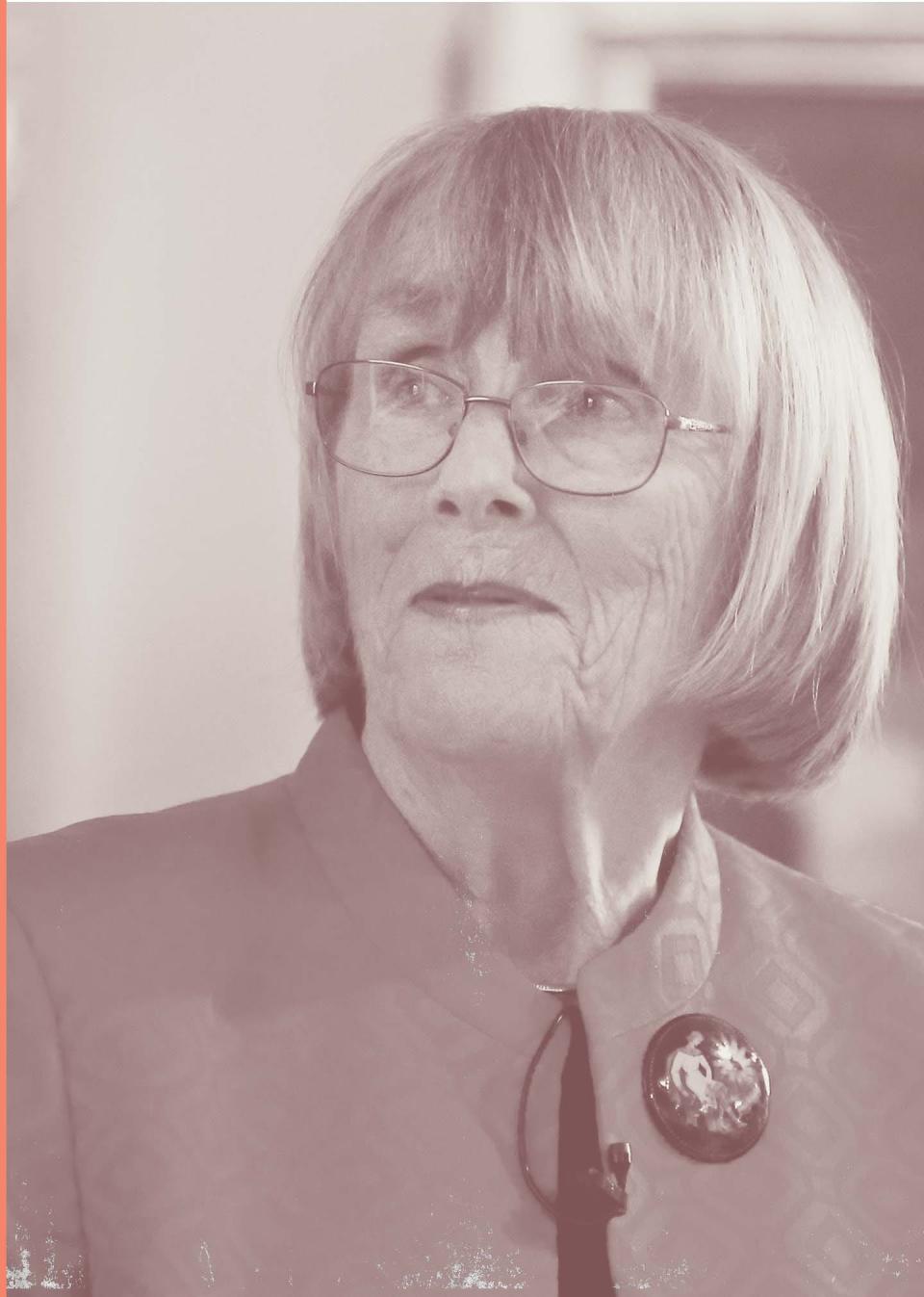
An environmental activist and politician, Dudley Dudley is best known for legislation that prevented an oil refinery from being built by major shipping company Aristotle Onassis in her hometown of Durham, New Hampshire, on the pristine shores of Great Bay in 1974.
Dudley served as a state legislator from 1972 to 1976. In 1976, she became the first woman elected to the New Hampshire Executive Council, where she served four consecutive terms. It was the first time in the state’s history that a woman was elected to an executive position.
In 1984, the Exeter native won the Democratic primary to represent New Hampshire's First Congressional District, but was unsuccessful in the general election.
It was in the fall of 1973 that Dudley, with two other women, rose above the barriers of wealth and power. The refinery project was adamantly supported by the state’s governor, but the women successfully organized their small town to fight against it. The refinery was estimated to generate 400,000 barrels of oil per day and cost $600 million to build; Dudley's efforts are credited with saving the Great Bay estuary’s ecosystem and the entire Seacoast from environmental disaster. The estuary’s and coastline’s beauty and health are now integral to the region’s tourism-based economy.
Doris “Granny D” Haddock
Political activist
(1910-2010)
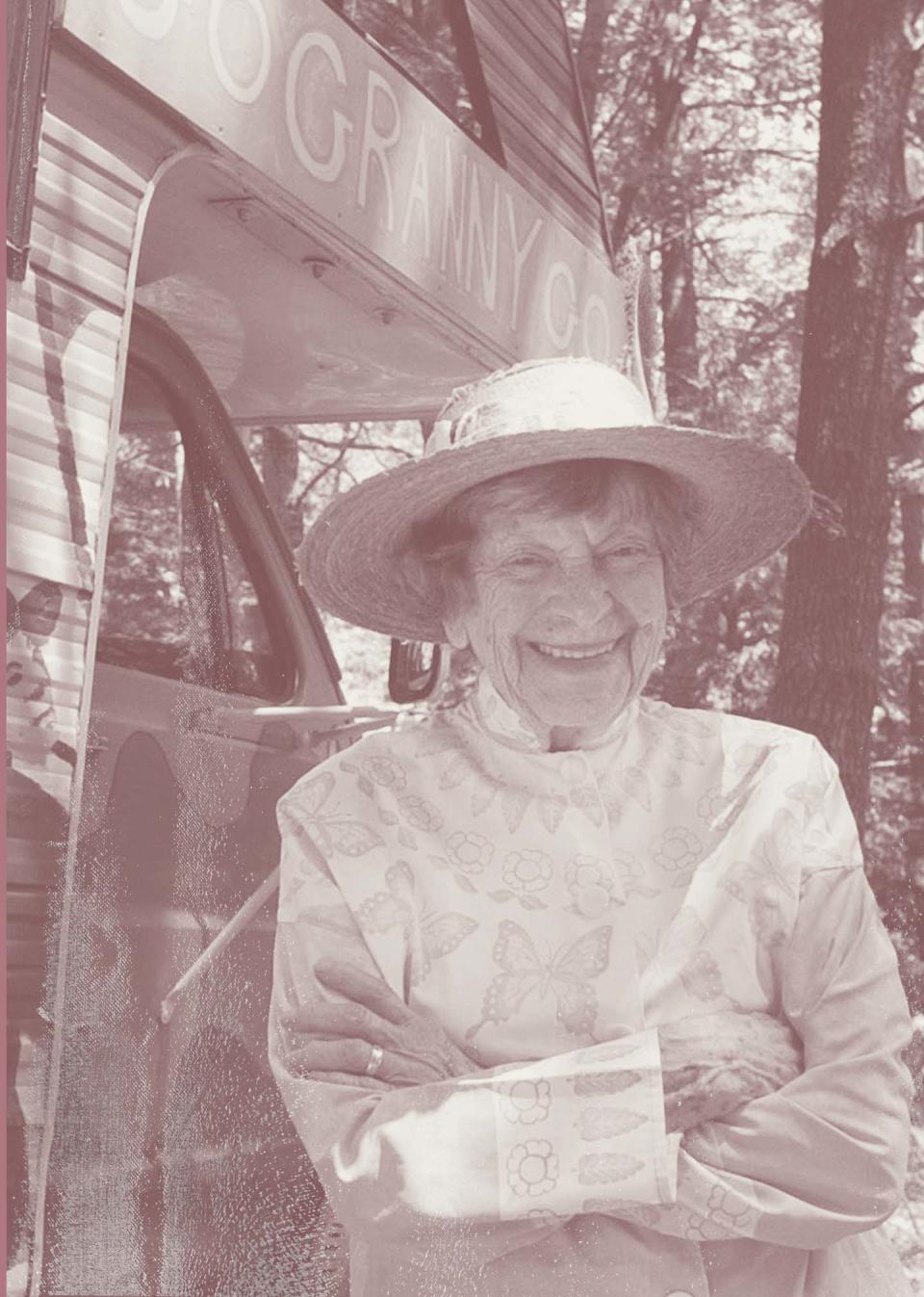
An activist, Doris "Granny D" Haddock knew how to walk the talk. Starting at the age of 88, she walked 3,200 miles across the United States to push for campaign finance reform. When her march ended on Feb. 29, 2000, she was 90.
The trek earned her national acclaim.
Her fear that her country was losing its democracy because corporations were exercising control over political campaigns and essentially deciding who gets elected fueled her one-woman march across the country.
Just over a month after her cross-country brought her back home, the Laconia native left the Granite State again to head back to the Washington D.C. There, she was arrested for illegally demonstrating inside the Capitol Rotunda. Twenty-nine other protesters were arrested with her.
Pleading guilty, she told the judge, “In my 90 years, this is the first time I have been arrested. I risk my good name – for I do indeed care what my neighbors think about me. But, Your Honor, some of us do not have much power, except to put our bodies in the way of an injustice – to picket, to walk, or to just stand in the way. It will not change the world overnight, but it is all we can do.”
In 2004, she ran unsuccessfully as a Democratic challenger to incumbent Republican Judd Gregg for the U.S. Senate. Without accepting private campaign contributions and running as a Democrat, Haddock garnered 34 percent of the vote against the long-term popular senator.
Even in college, Haddock had been a bit of a rebel. While studying acting at Emerson College in the 1920s, she secretly married James Haddock, who was studying at Amherst College. Secrets are hard to keep though, and when Emerson College learned about her wedding, she was expelled.
While she didn’t start advocating for campaign finance reform until she was 88, she kept pushing for it until she was 100 years old. A celebration of the centenarian's birthday was held at the New Hampshire House three days after the United State Supreme Court made the Citizens United decision, upholding political spending by corporations.
“The Supreme Court now opens the floodgates to usher in a new tsunami of corporate money into politics,” an angry Haddock said in a statement.
Kelly Ayotte
First female attorney general of New Hampshire, former U.S. senator
(1968- )

Kelly Ayotte was the first woman to be appointed attorney general for the state of New Hampshire.
After serving as attorney general for five years, the Nashua native ran for the U.S. Senate and represented the Granite State there from 2011 to 2017.
After graduating from law school, Ayotte clerked for Justice Sherman Horton of the New Hampshire Supreme Court before joining a law firm in 1994. Four years later, she became a state prosecutor at just 30 years old. She served as chief of the New Hampshire Homicide Unit and Deputy Attorney General before being appointed the state’s attorney general in 2004 at age 36.
Ayotte, who was reappointed attorney general twice, resigned in 2009 to run for the U.S. Senate. She received endorsements from high-profile Republicans Mitt Romney, Haley Barbour and Rick Santorum, and easily won the election. In office, her positions were constant with the Republican Party.
In 2016, Ayotte ran for a second term, facing off against Gov. Maggie Hassan and lost her Senate seat by 1,000 votes. The race was considered one of the most competitive in the country.
JerriAnne Boggis
Black activist
(1959- )

JerriAnne Boggis, a writer, historian and activist, has worked tirelessly to educate the public about the largely invisible history of African Americans in the state and New England region, and to build awareness of racism in all its forms as it exists today.
As executive director of the Black Heritage Trail of New Hampshire, Boggis has developed programming including walking tours, a series of annual symposiums, an annual New England regional conference and ongoing presentations to schools, businesses and civic organizations to raise awareness of state’s African American history.
Boggis is founder and director of The Harriet Wilson Project. She worked at the University of New Hampshire as the director of Diversion Programs and Community Outreach.
A native of Jamaica who moved to the U.S. in 1977, she has been a longtime resident of Milford, New Hampshire. Her publications include “Refugee Resettlement in New Hampshire,” “Reflections and Memories; Footsteps” and “Harriet Wilson’s New England: Race, Writing and Region,” and a collection of essays, the first devoted entirely to Wilson, a New Hampshire resident who was the first African American to publish a novel anywhere.
Boggis was named one of 25 Extraordinary Women of Southern New Hampshire by the Nashua Telegraph in 2015; named the 2017 Freedom Fighter by Seacoast NAACP; and in 2015, was named by the New Hampshire Humanities Council as one of the 40 most influential New Hampshirites who have vastly enriched human understanding.
More coverage
Women of the Century: They didn’t succeed despite adversity, but often because of it
50 states: Learn about notable women from every state
Who is your Woman of the Century?: Let us know
Recognizing women past and present: See all of our coverage
Sources used in the Women of the Century list project include newspaper articles, state archives, historical websites, encyclopedias and other resources.
This article originally appeared on USA TODAY: Women of Century New Hampshire: Activists, politicians, author on list
